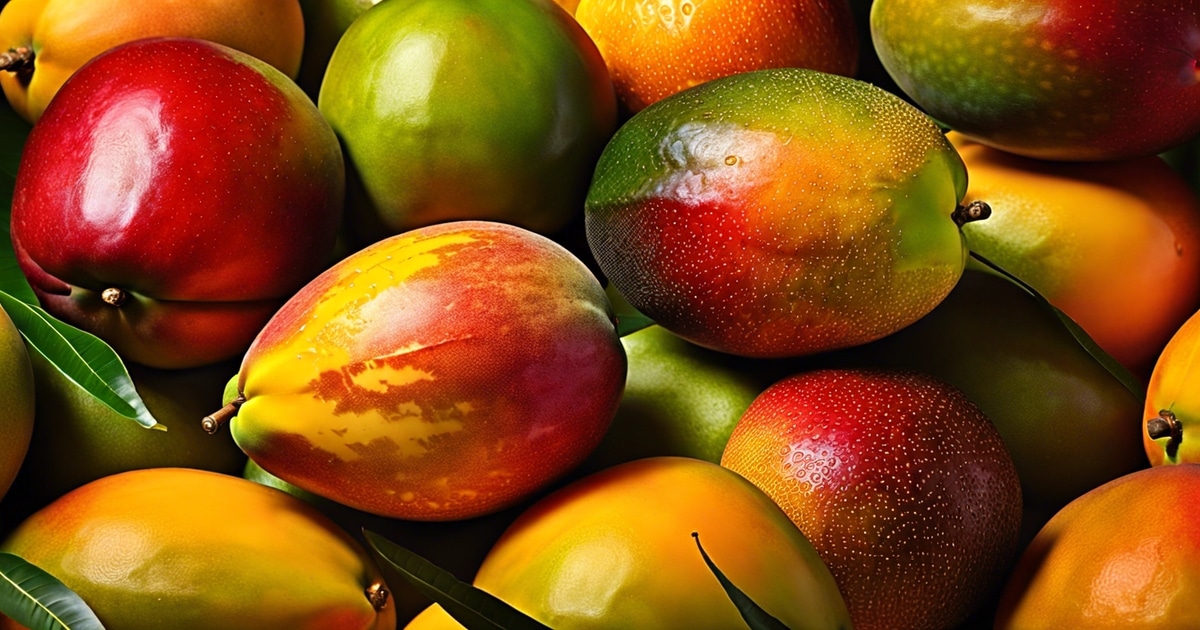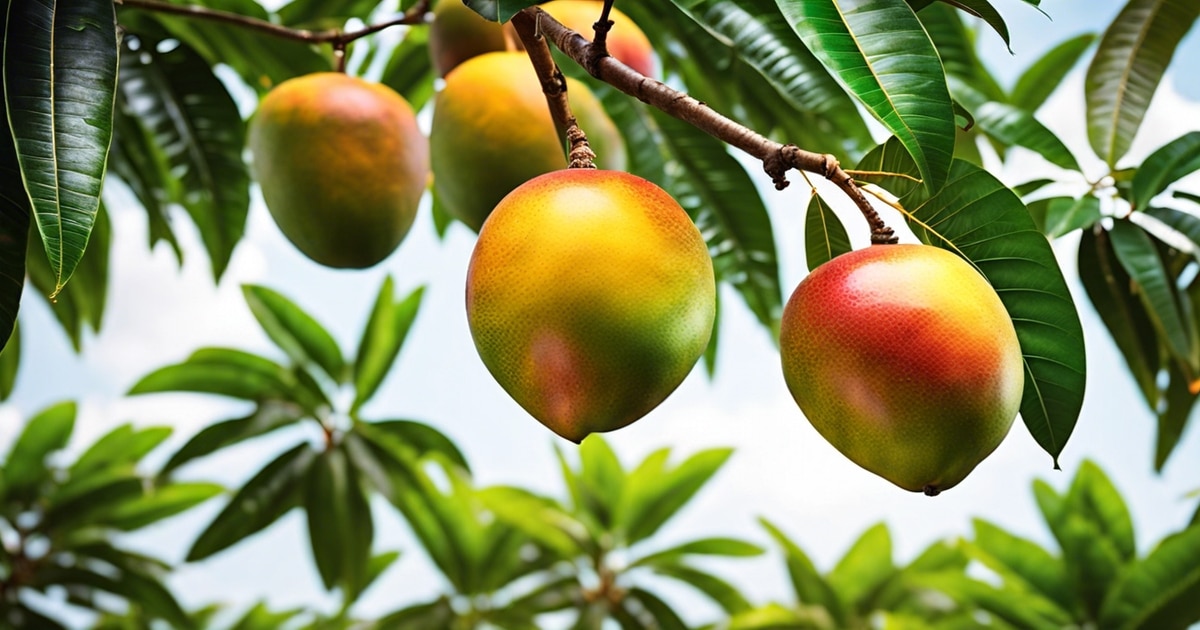Key Takeaways
-
African mango extract may offer health benefits such as aiding in weight management and promoting overall well-being.
-
When considering African mango for weight loss, combining it with a healthy diet and regular exercise is essential for optimal results.
-
Be mindful of potential side effects of African mango extract, such as digestive issues, and start with a lower dosage to assess tolerance.
-
Follow recommended dosage guidelines for African mango extract to ensure safety and effectiveness.
-
Pregnant or lactating individuals should consult healthcare providers before using African mango extract due to limited research on its safety during these periods.
-
By incorporating African mango extract responsibly into your routine, you can harness its benefits for your health and wellness.
Craving a natural way to boost weight loss? Ever considered African Mango? Wondering how this exotic fruit can amp up your metabolism and curb those cravings? Dive into our guide for the scoop on this superfood’s slimming powers. Ready to uncover the secrets behind African Mango’s potential as a weight-loss aid? Let’s explore its benefits and how it could be your ticket to shedding those extra pounds effortlessly.
Overview and History of African Mango
Weight Loss Benefits
African mango, also known as Irvingia gabonensis, has gained popularity recently for its potential weight loss benefits. Studies suggest that African mango may help with weight management by reducing fat cell growth and increasing the breakdown of fats.
Research shows that African mango supplements can significantly improve body weight, body fat, waist circumference, and cholesterol levels. Incorporating African mango into one’s routine might be beneficial for individuals looking to support their weight loss journey naturally.
-
Supports weight management
-
Reduces fat cell growth
-
Increases fat breakdown
Traditional Medicine Usage
African mango has been used in traditional medicine across West Africa for various health conditions for centuries. The fruit’s seeds are often ground into a paste to create a staple food called “dika bread.” In traditional medicine, different parts of the plant are utilized for treating ailments ranging from infections to digestive issues.
The history of African mango usage in traditional medicine highlights its potential health benefits beyond just weight loss. Incorporating this tropical fruit into one’s diet may offer a range of advantages based on its historical applications.
-
Utilized in traditional medicine
-
Seeds used for dika bread
-
Treats various health conditions
Nutritional Profile of African Mango

Rich in Fiber, Vitamins, and Minerals
African mango, or bush mango, is packed with essential nutrients. It contains a lot of fiber, aiding digestion and promoting gut health. The fruit boasts high levels of vitamin C for immunity, vitamin A for vision health, and minerals like potassium and magnesium.
These vitamins and minerals make African mango a powerhouse in supporting overall well-being. The fruit’s abundance of antioxidants helps combat oxidative stress in the body. These antioxidants are crucial in protecting cells from damage caused by free radicals.
Healthy Fats and Protein Content
Incorporating African mango into your diet can provide healthy fats and protein. While many fruits are low in fat content, this variety offers beneficial fats essential for various bodily functions. Moreover, the protein content found in African mango contributes to muscle repair and growth.
-
Benefits:
-
High fiber content aids digestion.
-
Abundance of vitamins supports immunity.
-
Antioxidants help fight oxidative stress.
-
Health Benefits of African Mango Extract
Cholesterol Levels
African mango seed extract can help balance cholesterol levels by lowering LDL (bad) cholesterol and increasing HDL (good) cholesterol. This means it may reduce the risk of heart disease. Studies show that consuming African mango extract regularly can positively impact your heart health.
Consuming African mango extract might also help manage inflammatory conditions due to its potential anti-inflammatory properties. People with conditions like arthritis or other inflammatory issues could benefit from incorporating this supplement into their routine. Reducing inflammation helps alleviate symptoms and improve overall well-being.
Blood Sugar Control
Research indicates that African mango extract could play a role in regulating blood sugar levels effectively. For individuals struggling with diabetes or trying to manage their blood sugar, incorporating this supplement into their daily regimen may prove beneficial. It aids in stabilizing glucose levels, promoting better health outcomes over time.
Weight Management and African Mango
Potential Benefits for Weight Loss
African mango extract is often promoted as a weight loss supplement. Research suggests it can boost metabolism and curb appetite, potentially aiding in weight management. Studies have indicated that this extract might assist in shedding body fat, reducing waist circumference, and enhancing overall body composition. These effects could be beneficial for individuals looking to manage their weight effectively.
-
May increase metabolism
-
Could reduce appetite
-
Promotes weight loss by decreasing body fat
Need for Further Research
While initial studies show promising results regarding the impact of African mango on weight management, more research is essential to understand its long-term effectiveness comprehensively. The scientific community continues to explore the full potential of African mango extract in addressing metabolic syndrome and promoting sustainable weight loss strategies.
-
Conduct more research on long-term effects.
-
Explore how African mango impacts metabolic health.
-
Investigate its role in improving overall well-being.
Potential Side Effects of African Mango
Mild Side Effects
Some people might experience negative effects when consuming African mango, such as gas, bloating, or headaches. These side effects are generally mild and temporary, and it’s crucial to note that these reactions vary from person to person.
Consuming African mango in moderation is typically safe for most individuals. However, it’s essential to consult a healthcare professional before adding any new supplement to your routine. This precaution ensures that the product suits you and won’t interact negatively with existing medications or conditions.
Consultation with Healthcare Professional
Before incorporating African mango into your diet, consult a healthcare provider. They can offer personalized advice based on your specific health needs and circumstances. They can also provide insights on dosage recommendations and potential interactions with medications you may be taking.
Dosage and Usage Guidelines for African Mango Extract

Varying Dosage
African mango extract dosage isn’t standardized due to differing product concentrations and formulations. It’s crucial to heed the manufacturer’s instructions or seek advice from a healthcare professional.
Typically, starting with a lower dose is advised, allowing for gradual increases if necessary. This cautious approach helps monitor any potential side effects mentioned earlier.
Consultation Importance
It is essential to consult with a healthcare provider before starting an African mango extract regimen. They can offer personalized guidance based on individual health conditions and medication interactions.
-
Follow manufacturer’s instructions
-
Start with lower dose, increase gradually if needed
-
Seek advice from healthcare professional
Considerations for Pregnancy and Lactation
Limited Research on Safety
Research on African mango extract during pregnancy and breastfeeding is limited. It’s crucial to prioritize caution.
It’s essential to consult a healthcare professional before considering African mango extract while pregnant or breastfeeding.
Prioritize Well-Balanced Diet
During pregnancy and lactation, focusing on a well-balanced diet is key. Consulting with a healthcare provider for personalized advice is advisable.
-
Consult a healthcare professional before using any dietary supplements.
-
Prioritize well-balanced diet during pregnancy and lactation.
Closing Thoughts
You’ve now uncovered the diverse facets of African Mango, from its rich history to its potential health benefits and weight management properties. Remember to consult a healthcare provider before incorporating new supplements into your routine, especially during pregnancy or lactation. Stay informed about the dosage guidelines to maximize the benefits without encountering adverse effects.
As you navigate the realm of wellness and nutrition, always prioritize reliable sources and verified information. Your journey towards a healthier lifestyle is unique, so tailor your choices to suit your needs best. Embrace the power of knowledge and make informed decisions to support your well-being.
Frequently Asked Questions
Is African Mango a natural fruit?
Yes, African Mango is a tropical fruit native to West Africa. Its scientific name is Irvingia gabonensis, and it has been traditionally used for various health benefits.
How can African Mango benefit my health?
African Mango may support weight management, improve cholesterol levels, regulate blood sugar levels, and promote digestive health due to its fiber content.
What are the potential side effects of using African Mango extract?
While generally safe when consumed in recommended doses, some individuals may experience mild side effects like headaches or gastrointestinal discomfort. It’s advisable to consult a healthcare provider before use.
How should I take African Mango extract for weight management?
For weight management purposes, taking African Mango extract 30 minutes before meals with a full glass of water is typically recommended. Remember to follow the dosage guidelines provided by the manufacturer or your healthcare provider.
Can pregnant women consume African Mango extract?
Pregnant and lactating women should avoid taking African Mango supplements unless approved by their healthcare provider. Limited research exists on its safety during pregnancy and breastfeeding periods.African mangoTakeaways
-
African mango extract may offer health benefits such as aiding in weight management and promoting overall well-being.
-
When considering African mango for weight loss, combining it with a healthy diet and regular exercise is essential for optimal results.
-
Be mindful of potential side effects of African mango extract, such as digestive issues, and start with a lower dosage to assess tolerance.
-
Follow recommended dosage guidelines for African mango extract to ensure safety and effectiveness.
-
Pregnant or lactating individuals should consult healthcare providers before using African mango extract due to limited research on its safety during these periods.
-
By incorporating African mango extract responsibly into your routine, you can harness its benefits for your health and wellness.
Craving a natural way to boost weight loss? Ever considered African Mango? Wondering how this exotic fruit can amp up your metabolism and curb those cravings? Dive into our guide for the scoop on this superfood’s slimming powers. Ready to uncover the secrets behind African Mango’s potential as a weight-loss aid? Let’s explore its benefits and how it could be your ticket to shedding those extra pounds effortlessly.
Overview and History of African Mango
Weight Loss Benefits
African mango, also known as Irvingia gabonensis, has gained popularity recently for its potential weight loss benefits. Studies suggest that African mango may help with weight management by reducing fat cell growth and increasing the breakdown of fats.
Research shows that African mango supplements can significantly improve body weight, body fat, waist circumference, and cholesterol levels. Incorporating African mango into one’s routine might be beneficial for individuals looking to support their weight loss journey naturally.
-
Supports weight management
-
Reduces fat cell growth
-
Increases fat breakdown
Traditional Medicine Usage
African mango has been used in traditional medicine across West Africa for various health conditions for centuries. The fruit’s seeds are often ground into a paste to create a staple food called “dika bread.” In traditional medicine, different parts of the plant are utilized for treating ailments ranging from infections to digestive issues.
The history of African mango usage in traditional medicine highlights its potential health benefits beyond just weight loss. Incorporating this tropical fruit into one’s diet may offer a range of advantages based on its historical applications.
-
Utilized in traditional medicine
-
Seeds used for dika bread
-
Treats various health conditions
Nutritional Profile of African Mango

Rich in Fiber, Vitamins, and Minerals
African mango, or bush mango, is packed with essential nutrients. It contains a lot of fiber, aiding digestion and promoting gut health. The fruit boasts high levels of vitamin C for immunity, vitamin A for vision health, and minerals like potassium and magnesium.
These vitamins and minerals make African mango a powerhouse in supporting overall well-being. The fruit’s abundance of antioxidants helps combat oxidative stress in the body. These antioxidants are crucial in protecting cells from damage caused by free radicals.
Healthy Fats and Protein Content
Incorporating African mango into your diet can provide healthy fats and protein. While many fruits are low in fat content, this variety offers beneficial fats essential for various bodily functions. Moreover, the protein content found in African mango contributes to muscle repair and growth.
-
Benefits:
-
High fiber content aids digestion.
-
Abundance of vitamins supports immunity.
-
Antioxidants help fight oxidative stress.
-
Health Benefits of African Mango Extract
Cholesterol Levels
African mango seed extract can help balance cholesterol levels by lowering LDL (bad) cholesterol and increasing HDL (good) cholesterol. This means it may reduce the risk of heart disease. Studies show that consuming African mango extract regularly can positively impact your heart health.
Consuming African mango extract might also help manage inflammatory conditions due to its potential anti-inflammatory properties. People with conditions like arthritis or other inflammatory issues could benefit from incorporating this supplement into their routine. Reducing inflammation helps alleviate symptoms and improve overall well-being.
Blood Sugar Control
Research indicates that African mango extract could play a role in regulating blood sugar levels effectively. For individuals struggling with diabetes or trying to manage their blood sugar, incorporating this supplement into their daily regimen may prove beneficial. It aids in stabilizing glucose levels, promoting better health outcomes over time.
Weight Management and African Mango
Potential Benefits for Weight Loss
African mango extract is often promoted as a weight loss supplement. Research suggests it can boost metabolism and curb appetite, potentially aiding in weight management. Studies have indicated that this extract might assist in shedding body fat, reducing waist circumference, and enhancing overall body composition. These effects could be beneficial for individuals looking to manage their weight effectively.
-
May increase metabolism
-
Could reduce appetite
-
Promotes weight loss by decreasing body fat
Need for Further Research
While initial studies show promising results regarding the impact of African mango on weight management, more research is essential to understand its long-term effectiveness comprehensively. The scientific community continues to explore the full potential of African mango extract in addressing metabolic syndrome and promoting sustainable weight loss strategies.
-
Conduct more research on long-term effects.
-
Explore how African mango impacts metabolic health.
-
Investigate its role in improving overall well-being.
Potential Side Effects of African Mango
Mild Side Effects
Some people might experience negative effects when consuming African mango, such as gas, bloating, or headaches. These side effects are generally mild and temporary, and it’s crucial to note that these reactions vary from person to person.
Consuming African mango in moderation is typically safe for most individuals. However, it’s essential to consult a healthcare professional before adding any new supplement to your routine. This precaution ensures that the product suits you and won’t interact negatively with existing medications or conditions.
Consultation with Healthcare Professional
Before incorporating African mango into your diet, consult a healthcare provider. They can offer personalized advice based on your specific health needs and circumstances. They can also provide insights on dosage recommendations and potential interactions with medications you may be taking.
Dosage and Usage Guidelines for African Mango Extract

Varying Dosage
African mango extract dosage isn’t standardized due to differing product concentrations and formulations. It’s crucial to heed the manufacturer’s instructions or seek advice from a healthcare professional.
Typically, starting with a lower dose is advised, allowing for gradual increases if necessary. This cautious approach helps monitor any potential side effects mentioned earlier.
Consultation Importance
It is essential to consult with a healthcare provider before starting an African mango extract regimen. They can offer personalized guidance based on individual health conditions and medication interactions.
-
Follow manufacturer’s instructions
-
Start with lower dose, increase gradually if needed
-
Seek advice from healthcare professional
Considerations for Pregnancy and Lactation
Limited Research on Safety
Research on African mango extract during pregnancy and breastfeeding is limited. It’s crucial to prioritize caution.
It’s essential to consult a healthcare professional before considering African mango extract while pregnant or breastfeeding.
Prioritize Well-Balanced Diet
During pregnancy and lactation, focusing on a well-balanced diet is key. Consulting with a healthcare provider for personalized advice is advisable.
-
Consult a healthcare professional before using any dietary supplements.
-
Prioritize well-balanced diet during pregnancy and lactation.
Closing Thoughts
You’ve now uncovered the diverse facets of African Mango, from its rich history to its potential health benefits and weight management properties. Remember to consult a healthcare provider before incorporating new supplements into your routine, especially during pregnancy or lactation. Stay informed about the dosage guidelines to maximize the benefits without encountering adverse effects.
As you navigate the realm of wellness and nutrition, always prioritize reliable sources and verified information. Your journey towards a healthier lifestyle is unique, so tailor your choices to suit your needs best. Embrace the power of knowledge and make informed decisions to support your well-being.
Frequently Asked Questions
Is African Mango a natural fruit?
Yes, African Mango is a tropical fruit native to West Africa. Its scientific name is Irvingia gabonensis, and it has been traditionally used for various health benefits.
How can African Mango benefit my health?
African Mango may support weight management, improve cholesterol levels, regulate blood sugar levels, and promote digestive health due to its fiber content.
What are the potential side effects of using African Mango extract?
While generally safe when consumed in recommended doses, some individuals may experience mild side effects like headaches or gastrointestinal discomfort. It’s advisable to consult a healthcare provider before use.
How should I take African Mango extract for weight management?
For weight management purposes, taking African Mango extract 30 minutes before meals with a full glass of water is typically recommended. Remember to follow the dosage guidelines provided by the manufacturer or your healthcare provider.
Can pregnant women consume African Mango extract?
Pregnant and lactating women should avoid taking African Mango supplements unless approved by their healthcare provider. Limited research exists on its safety during pregnancy and breastfeeding periods.

